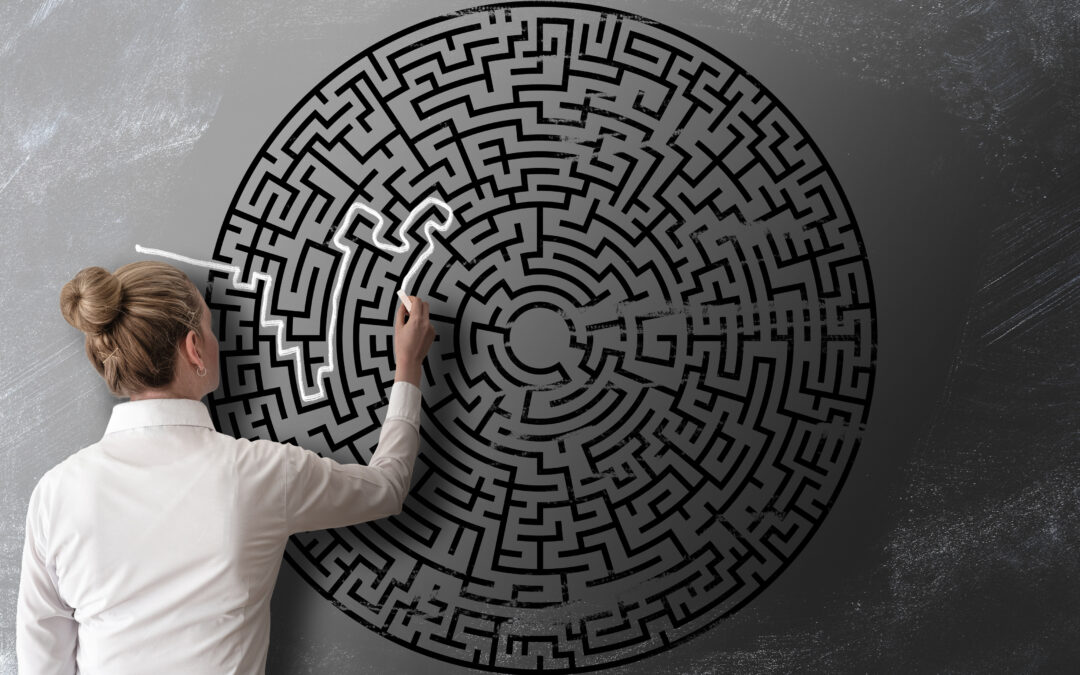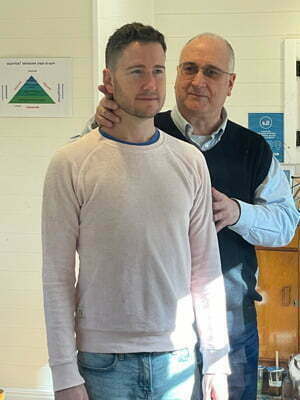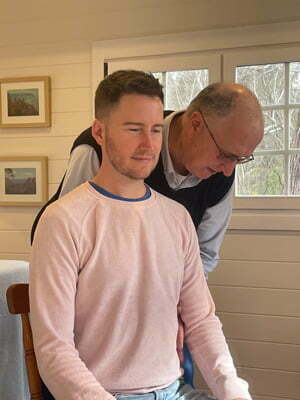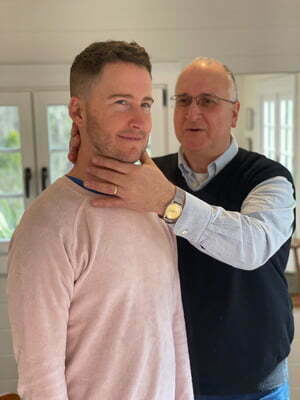The Alexander approach to human functioning.
The Alexander approach to teaching provides you with the opportunity for making choice within your movement and posture. Being consciously aware of your body in movement changes everything. The whole way that you function in the world has a different quality when you are using awareness to influence movement outcomes.
Alexander addresses fixed patterns that have become redundant or destructive. It helps you to find adaptive variability in the way you move and balance. Adaptive variability is the ability to respond to rapidly changing contexts appropriately. This can lead to many positive outcomes.
Movement and balance influence all the parts of our human body in an interdependent way. Consider your breath is movement, your blood moves, your digestion is a movement, the firing of the nerves is movement. Everything we do is based in movement. Alexander observed that movement is a fundamental ingredient in our emotional responses and in our thinking activity. His series of experiments and observation were designed to examine that fundamental inter-relationship.
Reductionism, Holism and Emergence
“Reductionism” is a way of looking at human health and wellbeing that is narrowly focused. Most modern medicine is reductionist.
FM Alexander warned that reductionism failed to see the whole picture. In his view, reductionism ignored the fundamental integration of all the parts into a coordinated functioning whole person.
Reductionism has led to some spectacular success and discovery in the field of medicine, science, and philosophy. One of the defining characteristics of this age is the massive improvement in lifestyle that modern science and medicine has afforded the world. The problem is that reductionist approaches can become blinkered. They can take a silo approach to human health and wellbeing. This can be alienating and, at times, negatively impactful.
“Holism” suggests that the only way that you can completely understand a system is to look at the working of all the components together.
In the 1890’s, FM Alexander was a gifted and astute observer who carried out long running experiments to validate his observations. He was able to describe a holistic model of human functioning based on, what he called, “psycho-physical unity”.
Many somatic therapies and educative technique ascribe to a psycho-physical model where posture and movement serve an integrating and coordinating role in wellness.
Alexander’s 130-year-old observations are finding validation within modern neuroscience.
Alexander Technique “emergence”.
Alexander said,
“The phrase ‘All together, one after the other” expresses the idea of combined activity I wish to convey.”[1]
Emergence describes when a complete system is more than the sum of all the component parts. This new concept of complex systems suggests that when people learn the Alexander Technique that the benefits that they experience are more complex and variable than one would at first assume. An Alexander lesson may appear to be about movement, but, because there is a fundamental inter-relationship between all the parts, the Alexander learning that occurs for each individual may be of a far more profound and meaningful nature than may occur with simple exercise.
Because of its complex nature, “psycho-physical re-education” provides a far deeper internal understanding and control than would at first appear likely. Learning Alexander Technique is neither mechanical nor linear because it affirms a complex emergent system of human functioning. This makes the experience of a simple movement class a profound experience for many Alexander students, making them consider a new idea of being a human that is aware, coordinated and present.
[1] https://upward-thought.com/tag/fm-alexander/
Inspired by podcasts from Stefanie Faye “Mindset NeuroScience”
and this book , “Thinking in Systems” by Donella H Meadows




